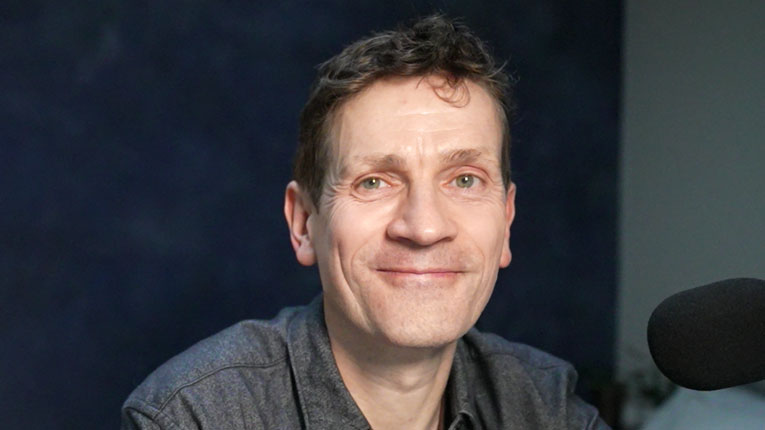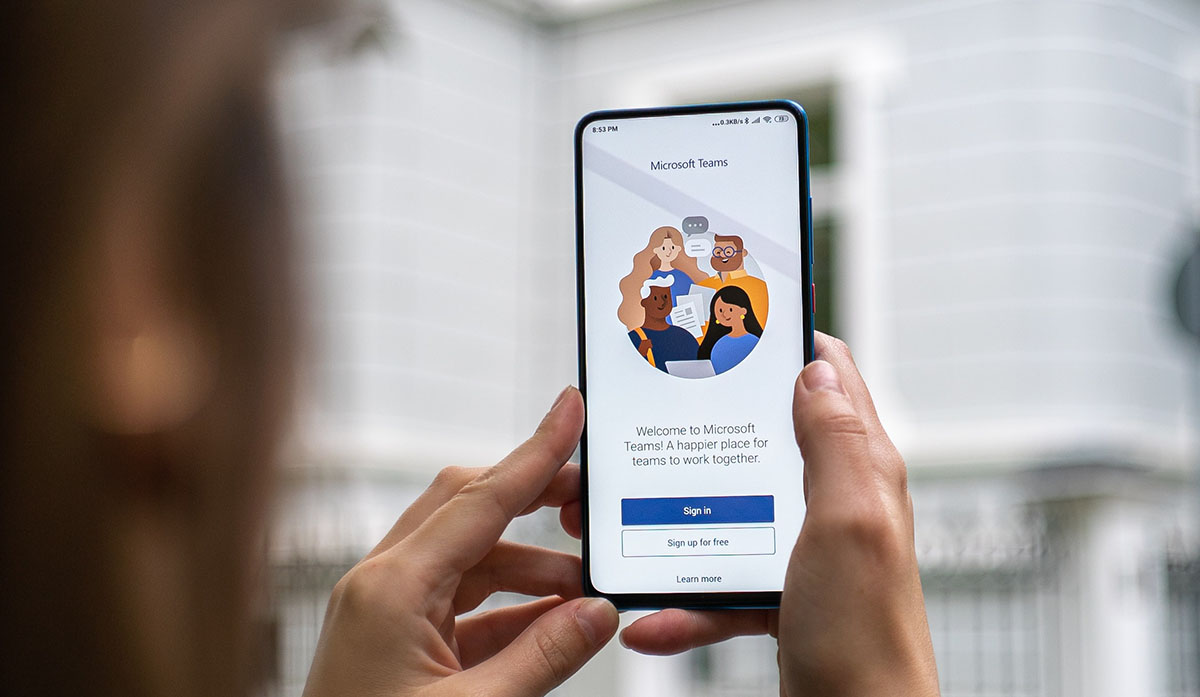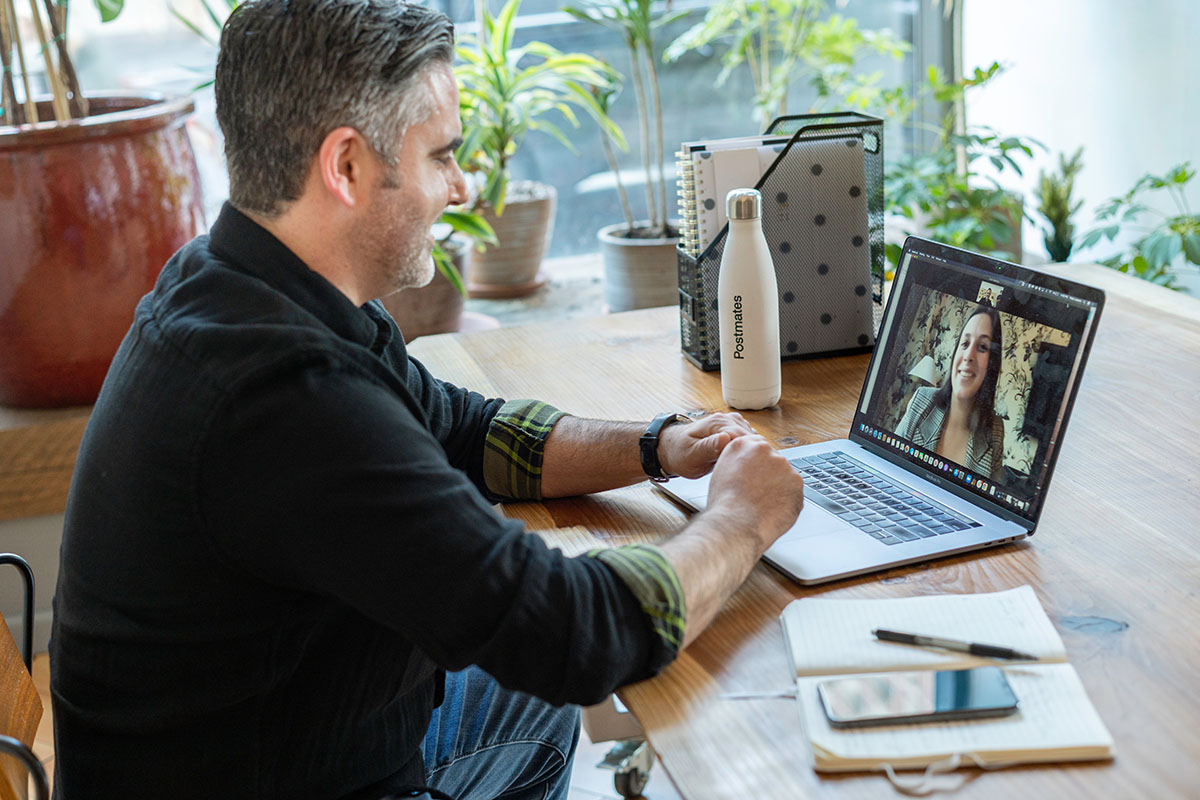Bruce Daisley on how breakthroughs come from deep work

Posted: Wed 14th Apr 2021
As part of Dell Small Business Month, we caught up with Bruce Daisley - a world authority on workplace culture - to discuss our collective addiction to interruptions, and what we can do to overcome them.
Bruce, who formerly ran Twitter in Europe, the Middle East and Africa, has thought about this a lot. Now a best-selling author, his book The Joy of Work gives 30 practical tips on making work more enjoyable, productive and rewarding.
Here's how our conversation went.
Bruce, why do you think we're preconditioned to get addicted to things like social media and email if they harm our productivity and mental health?
"When we talk about being addicted to social media or other apps on our phone, it's all about the dopamine hit. But when it comes to our relationship with our work - replying to emails or instant messages - it's something far more fearful.
"We're worried about the consequences of letting people down, which begs the question: is the way we're working the problem rather than an innate human desire to stay apprised of what your client is emailing you?

"I used to work in two big technology firms. When I entered them, I thought they had all the answers when it comes to a great working culture. What you realise is that they haven't got the answers, that they're merely brilliant at marketing and positioning themselves as the new thing.
"So I wondered what the answer was. How can we feel like we get some enjoyment from our job? That became the obsession for me."
Tell me more about this fear, because it's real, isn't it?
"A lot of people tell me that the fear of not getting back to clients, customers and people they work with in other companies is even more adrenalized because there are potentially bigger consequences.
"In China, for example, there's an expectation that no matter when a client sends you a message on WeChat, if you don't reply within 15 minutes it's taken as a slight. Are we that much different?
"There's a really interesting contribution to this by computer science professor Cal Newport. In his book A World Without Email, he sets his sights not just on email but Slack, Teams and Zoom. He describes it as the hyperactive hive mind - that we somehow feel our value is diminishing the longer we're disconnected from the hive mind. If we're reductive about the job we're doing, most of this connection is at best neutral and at worst dilutive to what we're actually doing.

"If you're a journalist and you're constantly checking your messages, that's preventing you from having a moment of connection where you can get a really fresh angle on whatever it is you're reporting on. We know that because, when people reach those epiphanies, it's after going into a period of intense cogitation.
"When you look at the value that shallow work creates and the value that deep work creates, almost without exception breakthroughs come from deep work. Concentration helps us achieve something. Maybe we are unhealthily addicted to interruptions - and the cost is that work is far more stressful than it needs to be."
Do people respond to interruptions in different ways? I can imagine they're more stressful for creative thinkers…
"There's a blog from 2009 by Paul Graham called Maker's Schedule, Manager's Schedule. He says that a manager's mind is all about checklists - small moments of intervention like answering their email, doing this, doing that. It's all very executional.
"The maker's mind is more reflective. If a manager and a maker each have a block of four hours of time, for a manager it's no problem dropping in a 15-minute meeting. It's just another thing on the to-do list.
"If you drop a 15-minute meeting into the maker's schedule, you destroy the four hours because you prevent them from getting into a place where they can be reflective."
Do you think the pandemic has changed people's approach to their work?
"We've all got a moment of individual and collective appraisal. The upside to what's happening is that we can reflect back on our previous life - perhaps you were out three nights a week, not seeing people in any sort of meaningful sense.

"I think all of us have become reacquainted with the people we live with, which has forced us to think that maybe we were acting in a way that was unbalanced. At the time we were oblivious to it.
"The majority of people - 88% - say they want to continue working remotely in some capacity. They still love the buzz of the office - they still want those moments of connection - but they also want to adopt this redistribution of wellbeing."
What would your advice for small businesses owners be in terms of getting into a place where they can be productive and relatively free from interruptions?
"Once a week, put an hour aside. That's it. It's a small concession breaking free of interventions. If you were in a meeting you would get away with not being contactable in that time. It's these small interventions - these small actions - that are the most achievable."
Need help with building your dream business?
No problem! As an Enterprise Nation member, you'll get free access to in-depth resources on everything from business plans and marketing to finance and sales. Join today for the full range of member benefits!
Get business support right to your inbox
Subscribe to our newsletter to receive business tips, learn about new funding programmes, join upcoming events, take e-learning courses, and more.
Start your business journey today
Take the first step to successfully starting and growing your business.
Join for free

